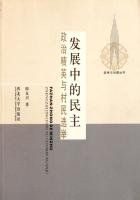How, then, are we to explain the Government's action? Are we to suppose that its members, like the members of the public at large, were themselves carried away by a sudden enthusiasm, a sudden conviction that they had found their saviour; that General Gordon was the man--they did not quite know why, but that was of no consequence--the one man to get them out of the whole Sudan difficulty--they did not quite know how, but that was of no consequence either if only he were sent to Khartoum? Doubtless even Cabinet Ministers are liable to such impulses; doubtless it is possible that the Cabinet of that day allowed itself to drift, out of mere lack of consideration, and judgment, and foresight, along the rapid stream of popular feeling towards the inevitable cataract. That may be so; yet there are indications that a more definite influence was at work. There was a section of the Government which had never become quite reconciled to the policy of withdrawing from the Sudan. To this section--we may call it the imperialist section--which was led, inside the Cabinet, by Lord Hartington, and outside by Lord Wolseley, the policy which really commended itself was the very policy which had been outlined by General Gordon in his interview with Mr. Stead and his letter to Sir Samuel Baker. They saw that it might be necessary to abandon some of the outlying parts of the Sudan to the Mahdi; but the prospect of leaving the whole province in his hands was highly distasteful to them; above all, they dreaded the loss of Khartoum. Now, supposing that General Gordon, in response to a popular agitation in the Press, were sent to Khartoum, what would follow? Was it not at least possible that, once there, with his views and his character, he would, for some reason or other, refrain from carrying out a policy of pacific retreat? Was it not possible that in that case he might so involve the English Government that it would find itself obliged, almost imperceptibly perhaps, to substitute for its policy of withdrawal a policy of advance? Was it not possible that General Gordon might get into difficulties, that he might be surrounded and cut off from Egypt'? If that were to happen, how could the English Government avoid the necessity of sending an expedition to rescue him? And, if an English expedition went to the Sudan, was it conceivable that it would leave the Mahdi as it found him? In short, would not the dispatch of General Gordon to Khartoum involve, almost inevitably, the conquest of the Sudan by British troops, followed by a British occupation? And, behind all these questions, a still larger question loomed. The position of the English in Egypt itself was still ambiguous; the future was obscure; how long, in reality, would an English army remain in Egypt? Was not one thing, at least, obvious-- that if the English were to conquer and occupy the Sudan, their evacuation of Egypt would become impossible?
With our present information, it would be rash to affirm that all, or any, of these considerations were present to the minds of the imperialist section of the Government. Yet it is difficult to believe that a man such as Lord Wolseley, for instance, with his knowledge of affairs and his knowledge of Gordon, could have altogether overlooked them. Lord Hartington, indeed, may well have failed to realise at once the implications of General Gordon's appointment-- for it took Lord Hartington some time to realise the implications of anything; but Lord Hartington was very far from being a fool; and we may well suppose that he instinctively, perhaps subconsciously, apprehended the elements of a situation which he never formulated to himself. However that may be, certain circumstances are significant. It is significant that the go-between who acted as the Government's agent in its negotiations with Gordon was an imperialist-- Lord Wolseley. It is significant that the 'Ministers' whom Gordon finally interviewed, and who actually determined his appointment were by no means the whole of the Cabinet, but a small section of it, presided over by Lord Hartington.
It is significant, too, that Gordon's mission was represented both to Sir Evelyn Baring, who was opposed to his appointment, and to Mr. Gladstone, who was opposed to an active policy in the Sudan, as a mission merely 'to report'; while, no sooner was the mission actually decided upon, than it began to assume a very different complexion. In his final interview with the 'Ministers', Gordon we know (though he said nothing about it to the Rev. Mr Barnes) threw out the suggestion that it might be as well to make him the Governor-General of the Sudan. The suggestion, for the moment, was not taken up; but it is obvious that a man does not propose to become a Governor-General in order to make a report.
We are in the region of speculations; one other presents itself.
Was the movement in the Press during that second week of January a genuine movement, expressing a spontaneous wave of popular feeling? Or was it a cause of that feeling, rather than an effect? The engineering of a newspaper agitation may not have been an impossibility-- even so long ago as 1884. One would like to know more than one is ever likely to know of the relations of the imperialist section of the Government with Mr. Stead.
But it is time to return to the solidity of fact. Within a few hours of his interview with the Ministers, Gordon had left England forever. At eight o'clock in the evening, there was a little gathering of elderly gentlemen at Victoria Station.













